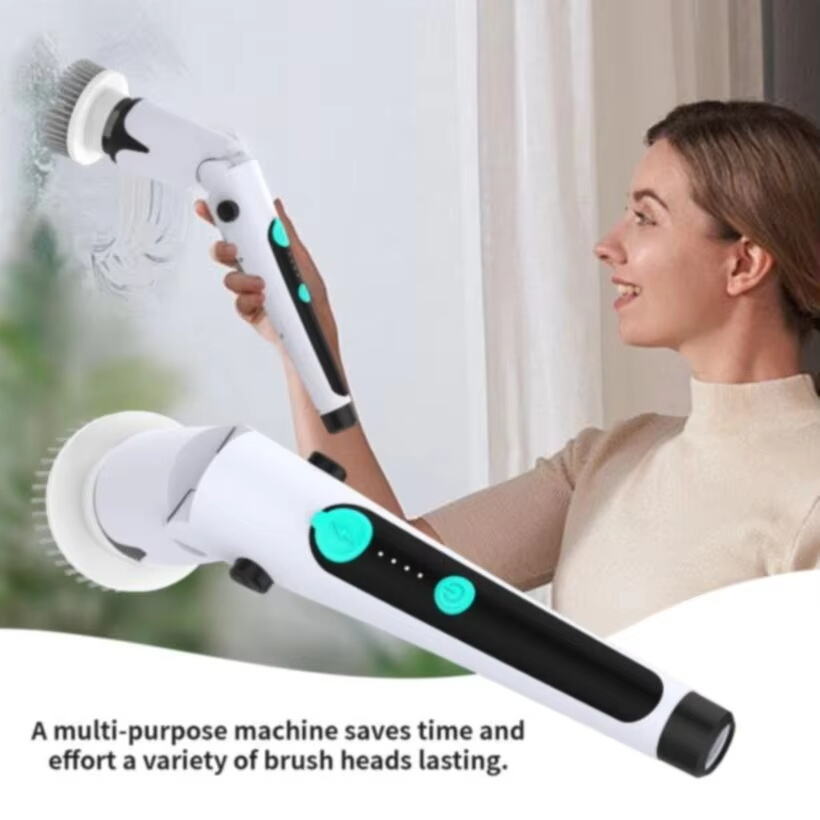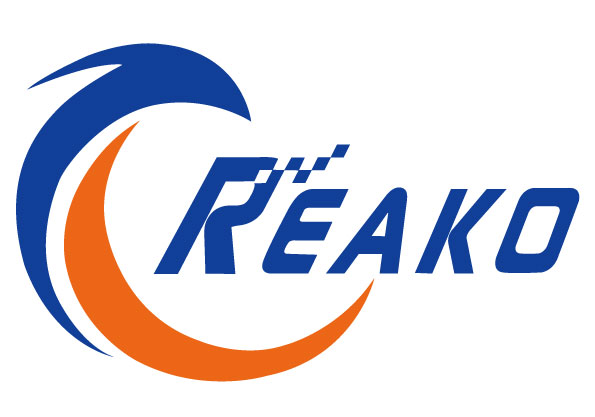The Core Technology Difference
Mechanism of Action
Electric toothbrushes really changed the game when it comes to keeping our mouths clean. They work differently than regular manual brushes because they actually move around instead of just sitting there. Some models vibrate back and forth (that's called oscillation), others spin around (rotation), and some do both at super fast speeds (sonic action). These motions help knock away plaque better than most people can manage with an old fashioned brush. Clinical research supports this too. A study published somewhere in the dental journals showed something pretty impressive actually. People who used electric brushes saw about 22% less gum problems and around 18% fewer cavities after ten years compared to those sticking with manual brushing. Makes sense why so many dentists recommend switching nowadays.
The way these brushes work lets their bristles get into those tricky spots where regular brushing just can't reach, knocking out plaque that gets left behind after a normal clean. What makes them so good at what they do? Well, it all comes down to how the brush heads are built. Soft bristles that angle towards the teeth and come in multiple layers stick closer to surfaces, which helps break apart that stubborn plaque film we all know about. Research backs this up too many dentists recommend these electric cleaners because they really do work better than standard toothbrushes for most people looking to improve their dental hygiene.
Cleaning Precision Dynamics
Electric toothbrushes really stand out when it comes to getting teeth clean properly and adapting to what's needed. They can switch between different brushing modes so they work well on all sorts of surfaces from flat molars to curved front teeth and even along sensitive gum areas where plaque tends to hide. What makes this possible are things like built-in pressure sensors that tell users if they're pressing too hard, plus timers that keep track of brushing time. These little tech additions mean people get a thorough cleaning without risking damage to their enamel or irritating their gums accidentally.
Research keeps showing electronic toothbrushes clean teeth better than regular ones. Take this big review published in the International Journal of Dental Hygiene for instance. They found these brushes get into those hard to reach spots between teeth and actually cut down on plaque buildup quite a bit. A lot of modern models come packed with neat tech stuff too. Some have built in timers that go off every 30 seconds so people don't forget to move around their mouth. Others connect to phone apps that track brushing patterns and give feedback. All these extra bells and whistles do more than just make brushing more efficient. They help form good habits that stick with users long term, which is probably why dentists keep recommending them despite the higher price tag.
Enhanced Plaque Removal Efficiency
Scientific Evidence Comparison
Research into how well plaque gets removed shows electronic cleaning brushes generally work better than regular manual brushes. Take for example a big review done recently that looked at data from over 100 clinical trials. The findings pointed out electronic toothbrushes tend to clean plaque away more effectively, especially those tricky spots where it's hard to reach with fingers. Dental professionals have noticed these benefits too, which is why groups like the American Dental Association recommend them after seeing what actual research has shown about their effectiveness.
Gingivitis Reduction Rates
People who switch to electric toothbrushes tend to have better gum health according to multiple research studies. When researchers check patients' gums before and after they start using these brushes, they often see a big drop in gingivitis symptoms. The newer models on the market really work wonders for oral health, cutting down both swelling and those pesky plaque deposits that stick around so stubbornly. Long term tracking shows people who keep using electric brushes month after month actually maintain healthier gums compared to traditional methods. Most major dental associations recommend going electric because they just plain work better at stopping gum problems from developing. While manual brushing still gets the job done, many dentists will tell patients that investing in an electric model pays off in the long run for overall mouth health.
Built-In Guidance Systems
The built in guidance systems on electric toothbrushes really make a difference for most people because they help improve how we brush our teeth. Things like timers and pressure sensors give immediate feedback so folks actually follow good brushing methods instead of just going through the motions. People who don't know much about proper brushing technique find these features super helpful since they take all the uncertainty out of figuring out if they're doing it right. Research from dental associations shows that people using brushes with guidance systems tend to be happier with their results and develop better brushing habits over time. The fact that these tech features lead to better oral hygiene habits proves why manufacturers keep adding them to their products year after year.
Accessibility for All Ages
Electronic cleaning brushes come in many shapes and sizes now, really targeting people at different stages of life, whether they're kids just starting out or older folks who need something easier to handle. The brushes often feature soft handles that don't slip and buttons that aren't too small to press, which makes them great for anyone whose hands might not work as well as they used to. We see this benefit reaching even further when looking at folks with particular challenges too. Many parents report their autistic children actually enjoy brushing with these models because the vibrations feel comforting instead of scary. Dental clinics have noticed something interesting too: patients who previously struggled with regular brushes are maintaining better oral health thanks to these newer designs. What started as a niche product is now changing how millions approach daily dental care without worrying so much about age or mobility issues getting in the way.

Long-Term Oral Health Impact
Enamel Protection Benefits
Electric toothbrushes give teeth a better chance at staying strong because they clean gently but thoroughly. Research published in the Journal of Clinical Periodontology shows folks who switch to electric brushes tend to have about 22 percent less gum recession and around 18 percent fewer cavities than people still using regular brushes. What makes this possible? These brushes work smarter rather than harder, avoiding the kind of forceful scrubbing many do instinctively when brushing manually. Keeping enamel intact matters a lot since damaged enamel leads to sensitive teeth and expensive fillings down the road. When plaque gets removed properly and enamel stays protected, electric brushes help maintain good dental health right now while also setting the stage for healthier smiles years from now.
Economic Value Proposition
Electric toothbrushes offer real money saving benefits because they actually work better at keeping teeth healthy, which means less need for expensive dental fixes down the road. People who regularly use these devices tend to have fewer problems with receding gums and cavities, so they don't end up needing fillings or other costly procedures as often. According to research from the Oral Health Foundation, around two thirds of people prefer electric brushes simply because they clean more thoroughly than regular ones, leading to fewer trips to the dentist's chair. When someone spends on good quality oral care tech, they're getting both immediate improvements in their smile and significant savings in the long run. Getting an electric brush isn't just another purchase decision it represents taking control of one's health wallet wise while still looking after those pearly whites.
Making the Optimal Choice
Key Selection Criteria
When picking out an electric toothbrush, there are several key things worth looking at including how long the battery lasts, whether it works with different brush heads, and what kind of cleaning options come with it. A good battery means less hassle during daily brushing sessions, while having multiple brush heads lets people tackle everything from delicate enamel care to stubborn plaque buildup without needing separate tools. Most modern brushes offer different settings too like back and forth motion, spinning action, or sometimes both together so individuals can find what works best for their particular mouth situation. Dentists usually recommend matching brush features to actual dental problems someone might have, whether it's sensitivity issues or gum troubles because when these match up properly, the whole brushing experience becomes much more effective. Before buying though, anyone serious about better dental health really needs to think through their own unique dental challenges plus daily routines to pick something that actually fits into their life and improves overall mouth cleanliness.
Transitioning Techniques
Making the switch from a regular toothbrush to an electric one takes some getting used to, but there are ways to make it smoother. Start off by checking out all the different settings on your new brush and how it feels in hand. Don't press too hard when brushing either since pushing down isn't really needed and might actually hurt your gums over time. People who want to get the best results from their electric brushes often find themselves changing up old habits. The built-in timer is pretty handy for keeping track of brushing time without having to watch the clock. Some folks struggle at first with the buzz of the brush or just finding it heavier than what they're used to, but most get past these issues after using it regularly for a few weeks. Taking things slow and sticking with it usually pays off in the long run, allowing people to truly benefit from what modern dental tech has to offer.
FAQ
How do electronic cleaning brushes enhance oral hygiene?
Electronic cleaning brushes enhance oral hygiene through their advanced mechanisms like oscillation and rotation, which efficiently disrupt and remove plaque, particularly in hard-to-reach areas.
What makes electronic brushes better at removing plaque compared to manual brushes?
Electronic brushes excel in plaque removal due to their dynamic cleaning actions and technologies, such as oscillation and pulsation, which provide a comprehensive clean that manual brushes often miss.
Are electronic cleaning brushes suitable for all age groups?
Yes, electronic cleaning brushes are designed with features like soft grips and intuitive interfaces to cater to all age groups, from children to seniors, ensuring ease of use for individuals of different abilities.
Can electronic brushes really help reduce gingivitis?
Multiple clinical trials support the claim that electronic brushes reduce gingivitis by improving plaque removal and gum health, aided by innovations like micro-vibrating technology.
How do built-in guidance systems benefit users?
Built-in guidance systems provide real-time feedback to improve brushing techniques, making them especially beneficial for those unfamiliar with optimal brushing practices.
Table of Contents
- The Core Technology Difference
- Enhanced Plaque Removal Efficiency
- Built-In Guidance Systems
- Accessibility for All Ages
- Long-Term Oral Health Impact
- Making the Optimal Choice
-
FAQ
- How do electronic cleaning brushes enhance oral hygiene?
- What makes electronic brushes better at removing plaque compared to manual brushes?
- Are electronic cleaning brushes suitable for all age groups?
- Can electronic brushes really help reduce gingivitis?
- How do built-in guidance systems benefit users?


